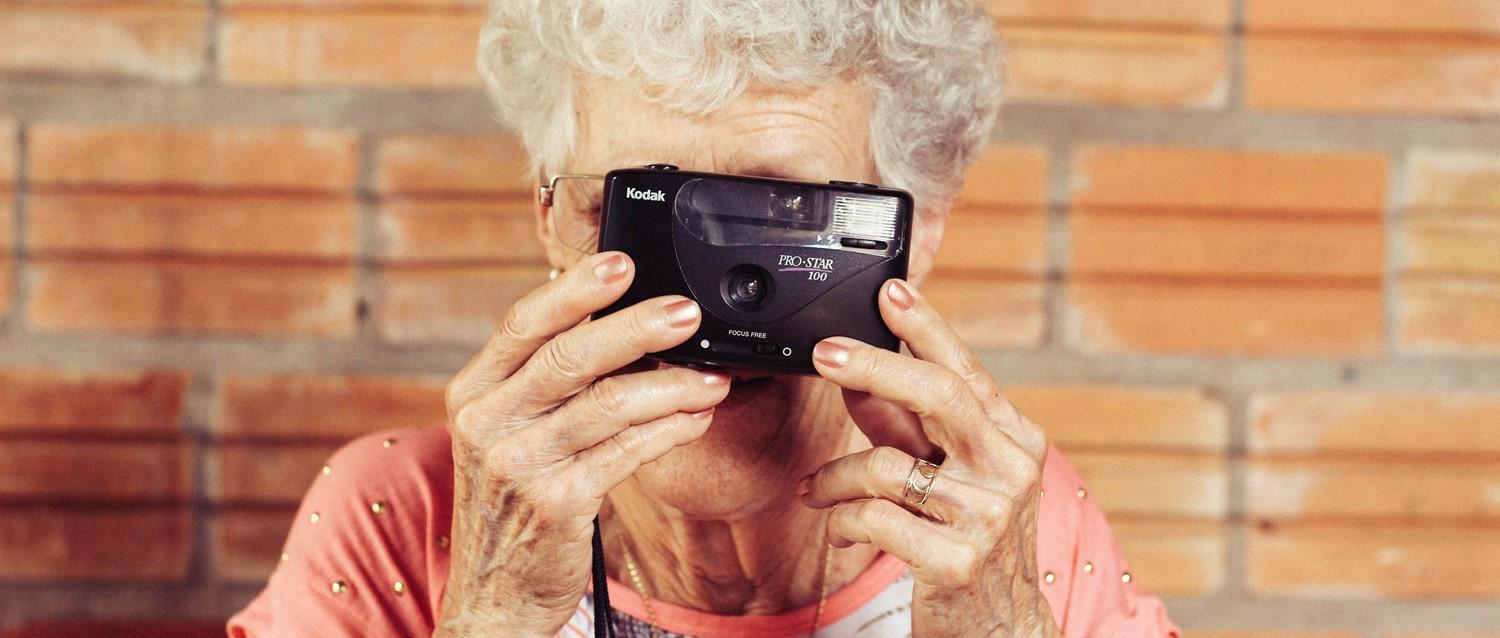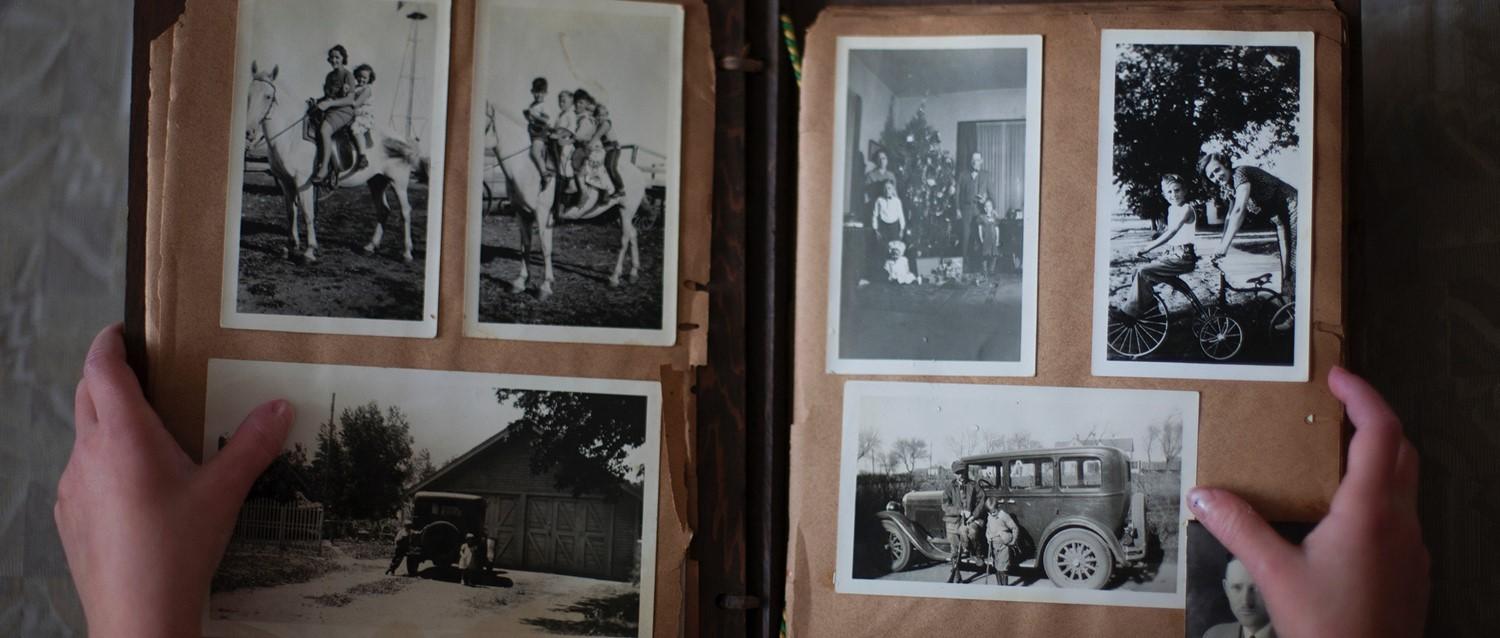
How to tackle dementia stigma
Peer reviewed by Dr Sarah Jarvis MBE, FRCGPLast updated by Dr Laurence KnottLast updated 17 Jun 2018
Meets Patient’s editorial guidelines
- DownloadDownload
- Share
- Language
- Discussion
We talk about sexually transmitted infections quite openly these days. Drug misuse and alcoholism are no longer news, particularly among celebrities. Even cancer - once referred to as 'the big C' - is now spoken of freely in the media by people keen to share their experiences.
Dementia, on the other hand, remains one of the last 'stigma' conditions. People diagnosed with dementia, and those close to them, seem ashamed to reveal the diagnosis until it can no longer be kept hidden.
In this article:
Continue reading below
The stigma of dementia
It wasn't until after my father died in 2011 that my mother's Alzheimer's dementia became apparent.
Visiting her in her warden-controlled flat after the funeral, we found a huge pile of potatoes on the draining board. Mother had spent the week buying spuds, forgetting she had bought them, and going back to the shop to buy more.
As the weeks went by, it became apparent what a brilliant job my father had done in covering it all up. So brilliant in fact that even I, her son and an old warhorse of a GP, hadn't the slightest inkling that there had been a problem. Never once did he complain or ask for help.
Just as astonishing had been the way my mother had presented herself. Patients with dementia, as I know from my professional experience, can be remarkably cunning in covering up their memory loss. Having convinced me that yes, she had indeed posted my birthday card, I was down the post office the following day, banging on the counter and demanding to know what had gone wrong.
Don't put me in a home
"When I grow old, don't put me in a home." This message had been drummed into me by my mother from a very early age. She had never been the most sociable of people. The last thing she wanted would be to spend her remaining days sitting in an armchair in a communal room playing bingo while Vera Lynn was blasted at her at full volume.
So now, when confronted with this, I made the same mistake as my father, and tried to keep it hidden from the outside world. I attempted to arrange things so that Mum remained in her own home and to those who were not 'in the know' everything would appear as it once was. It soon became apparent that to achieve this would be no easy task.
As the condition took hold, Mum could not be relied upon to feed herself, dress herself or bathe herself. So a huge army of carers were enlisted to provide support, along with meals on wheels, hairdressers, podiatrists, my wife, myself and many others.
The trouble was that Mum's flat only had one bedroom and care could not be provided 24/7. For an 84-year-old there was little wrong with her physically. As soon as our backs were turned, she was off out the flat and on her way to Tesco. After a couple of phone calls from the warden telling me she had been brought back by other residents who had found her wandering outside in her socks, I decided enough was enough.
My first port of call was her GP who referred her on to the Memory Clinic. She submitted to lots of tests but refused to tolerate the MRI scanner which, as soon as she was placed in it, she shot out of like a human cannonball. Nevertheless, the psychogeriatric consultant had enough information to make a fairly confident diagnosis of Alzheimer's dementia. He put her on rivastigmine patches.
The health professionals who were now involved in her care pushed me towards residential accommodation but my mother's words kept ringing in my ears. "When I grow old, don't put me in a home." I am an only child and it's at times like these you wish you had a sibling with whom you could share the decision.
I think the rivastigmine slowed the progress of the condition for a while but the final straw came when I received a phone call to say that Mum had dragged all her bedding on to the stairwell, and had phoned the police, insisting there was an intruder in her flat (which there wasn't).
Continue reading below
Home from home
My mother is now in a very lovely residential home with staff trained to look after people with dementia. Yes, there is a communal room which residents can spend some time in but she also has her own room she can retire to when she wants to. And not once have I heard the sound of bluebirds over the white cliffs of Dover. She is now 90 and seems to be very happy, albeit in her own little world. Perhaps if the stigma of having dementia was not so profound my father would have asked for help sooner, and I'd have had the courage to make the decision about residential care a year or two earlier.
I'm a celebrity ...
Imagine how difficult the situation is if the person involved is a celebrity. Dame Barbara Windsor and her husband Scott Mitchell waited four years before revealing her diagnosis.
"I know first-hand just how difficult a dementia diagnosis can be, not only for the person affected but everyone close to them," said Mitchell. "For me personally, being able to talk openly about Barbara's dementia has been invaluable and a huge sense of relief. It is so important that we address the stigma surrounding dementia and all make small changes in our communities to help people like Barbara to continue to go out and live the life that they want."
The stigma of dementia was highlighted by a 2017 survey of 500 people with dementia - 'Turning Up The Volume'. It was clear during Dementia Action Week in May this year that things have not improved.
Jeremy Hughes, chief executive of the Alzheimer's Society, said "A year from the launch of the new Dementia Statements, setting out the rights for people with dementia to live the lives they want and be included in society, it is saddening to see that there is still so much fear and stigma surrounding dementia. There is no denying that living with dementia is enormously challenging and so it is vital that we all unite to tackle the biggest health and social care issue of our day."
Continue reading below
You've got a friend in me
Over 2.4 million people have already become Dementia Friends and there are already over 350 communities working to become dementia-friendly but there is still so much more to do. Changing attitudes begins at home. One important message is that even if your loved one has developed dementia, the same person is still there if you dig deep enough. Particularly in the early stages, you can still talk to them rationally during periods of lucidity, and even later you can have pleasant conversations, reminiscing about past shared experiences.
Older people also have a responsibility to have a discussion with their family about how they would like to be cared for, should they lose the power of rational thought. I've already had that conversation with my kids and - in view of the experiences I have had with my own mother - I have told them that if I start behaving eccentrically or displaying short-term memory loss, they should encourage me to seek professional help. Their response? "We already have weekly meetings, Dad. At the moment, the jury's still out."
Patient picks for Memory loss and dementia

Brain and nerves
How to reduce your risk of dementia
Dementia is a progressive condition affecting the way the brain works. It can cause poor memory, confusion about time and place, difficulties with speech, poor judgement, and inappropriate behaviour. There are a number of risk factors which make it more likely that an individual will develop dementia. Some are easier to do something about than others. This article aims to arm you with enough information to put up the best fight you can against developing this disease.
by Dr Laurence Knott

Brain and nerves
How to make shopping easier for people with dementia
Most of us take it for granted, but if you have dementia, going shopping can pose a Herculean task. Volunteer schemes, such as the Alzheimer's Society's Side by Side service, can make things easier, but retailers also need to take the lead.
by Ross Davies
Continue reading below
Article history
The information on this page is peer reviewed by qualified clinicians.
17 Jun 2018 | Latest version

Ask, share, connect.
Browse discussions, ask questions, and share experiences across hundreds of health topics.

Feeling unwell?
Assess your symptoms online for free
Sign up to the Patient newsletter
Your weekly dose of clear, trustworthy health advice - written to help you feel informed, confident and in control.
By subscribing you accept our Privacy Policy. You can unsubscribe at any time. We never sell your data.